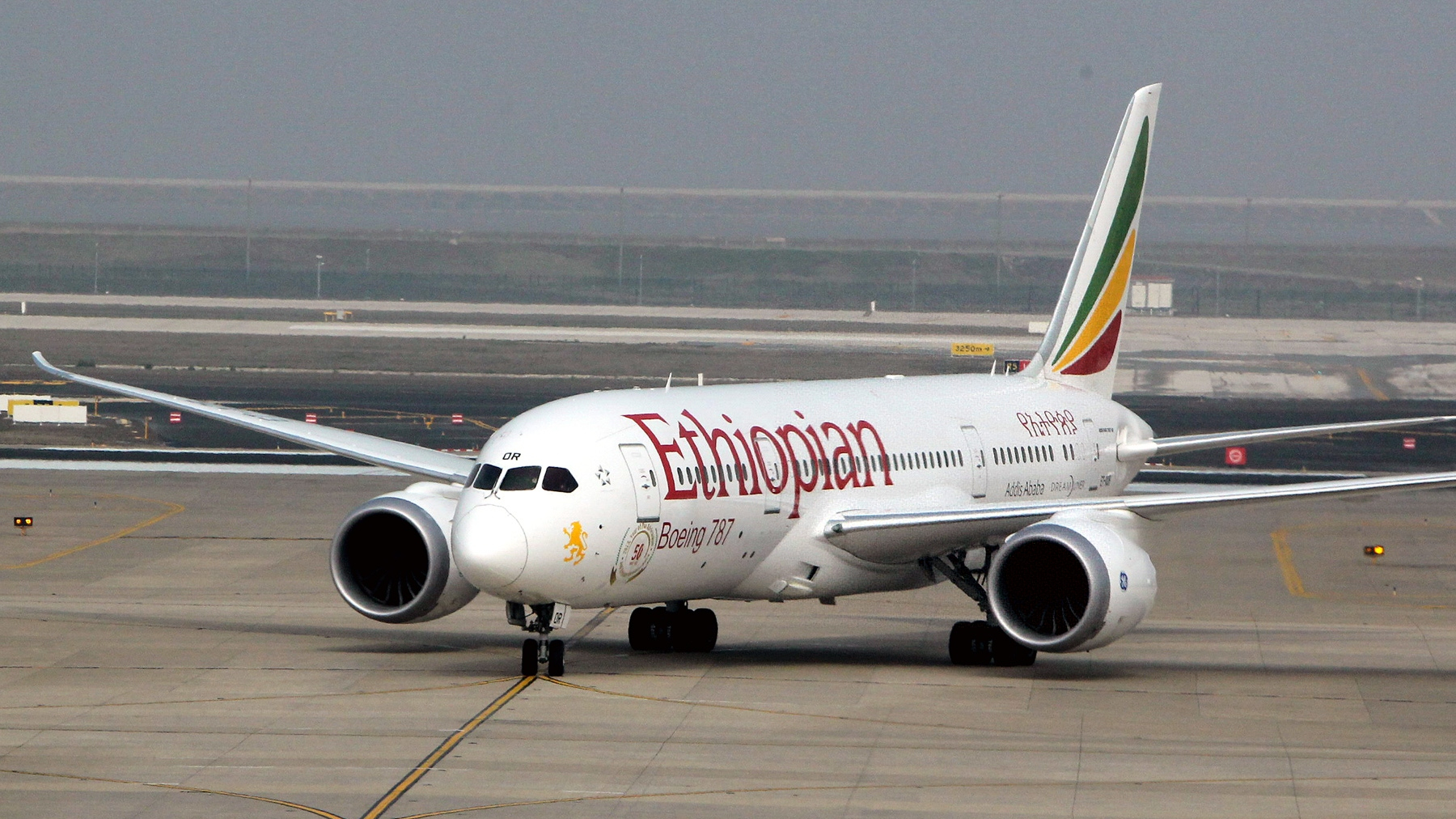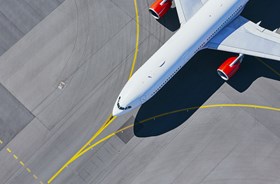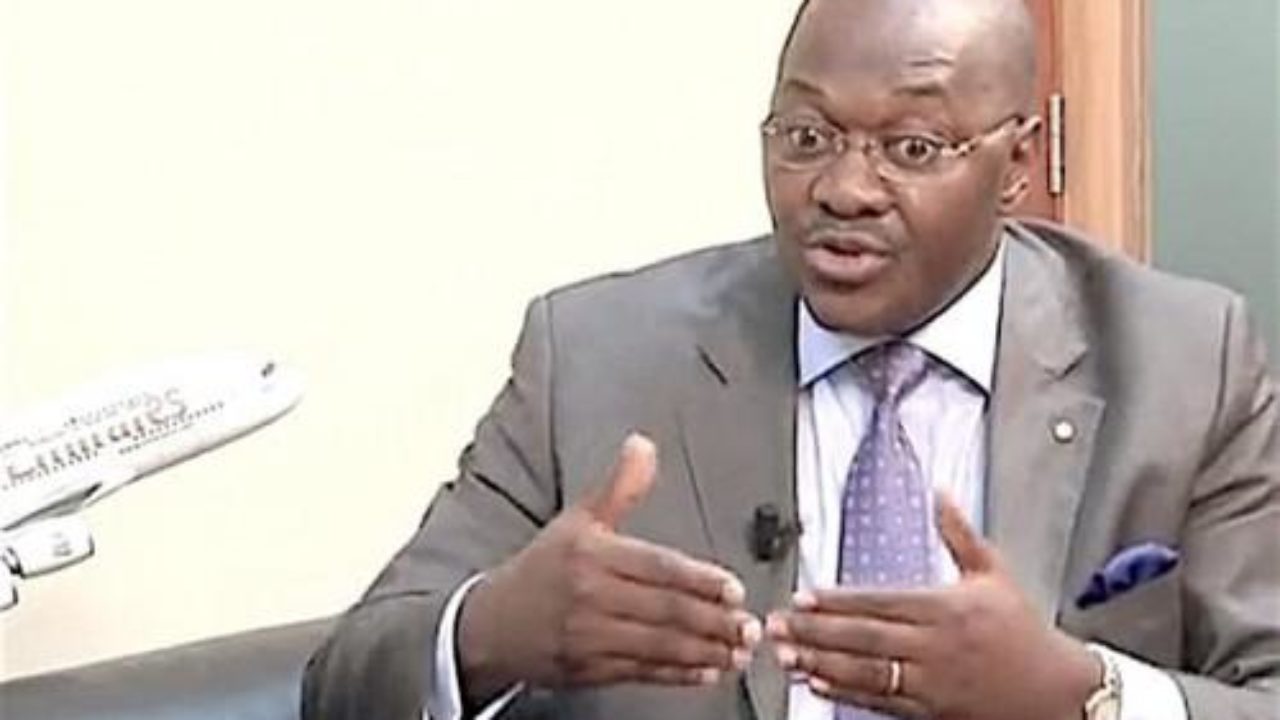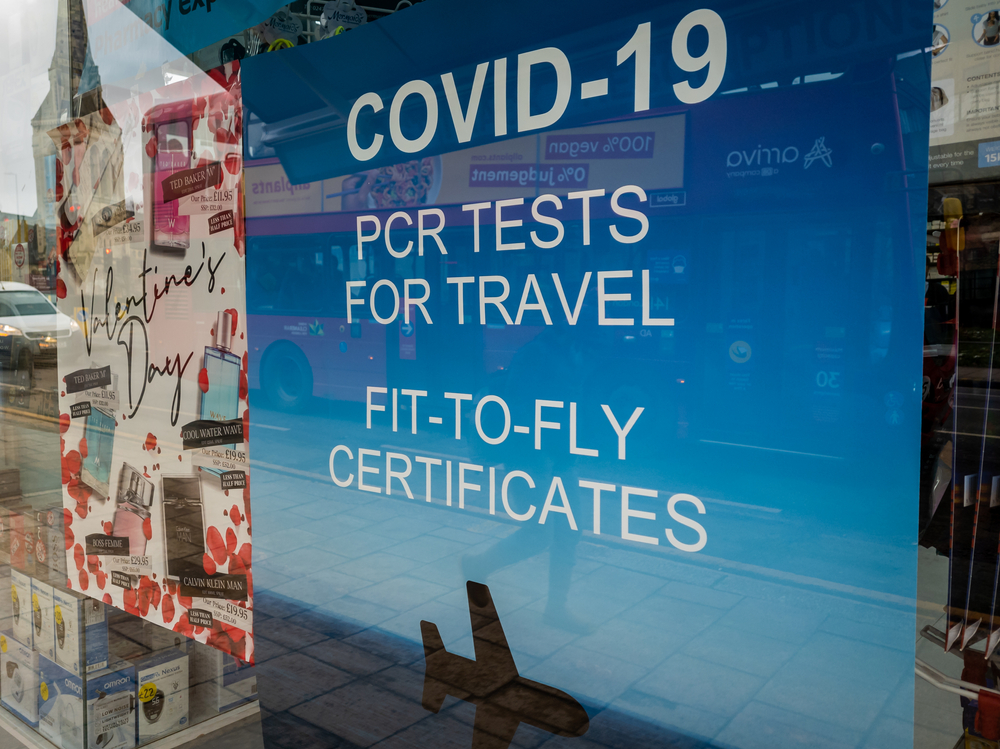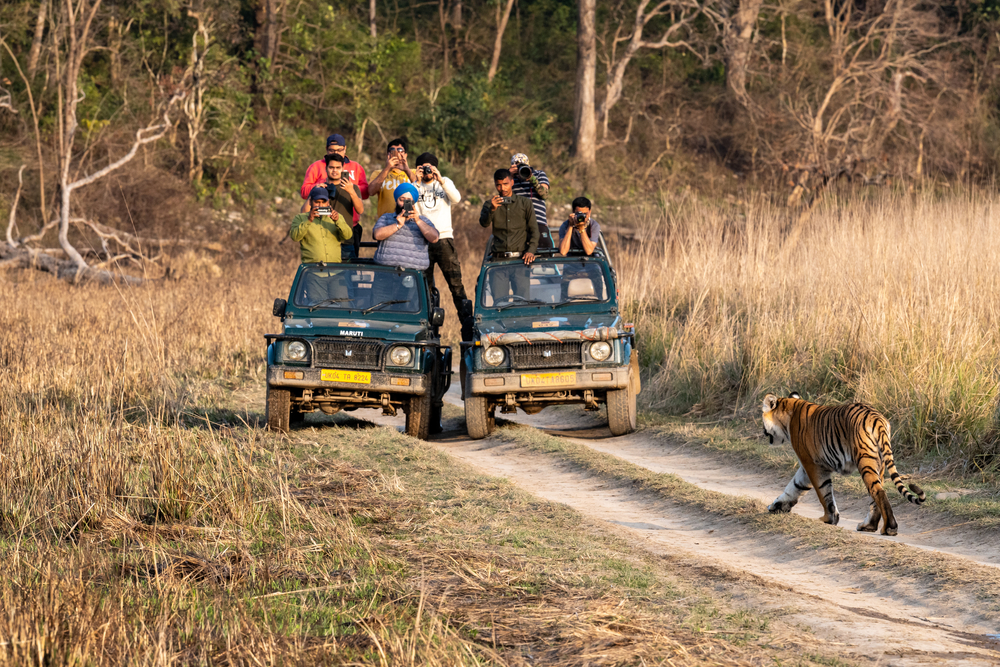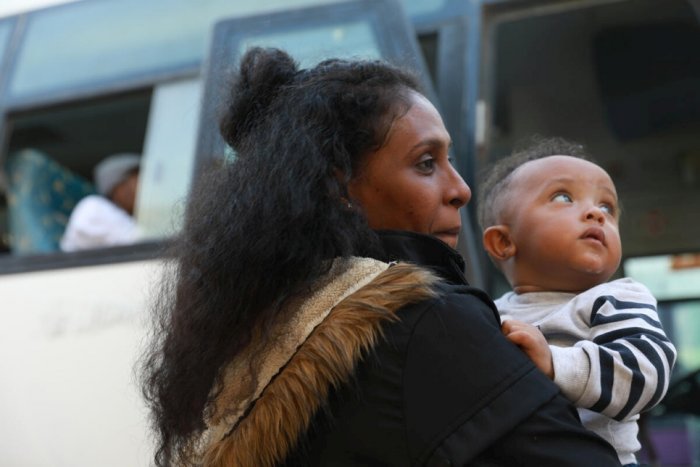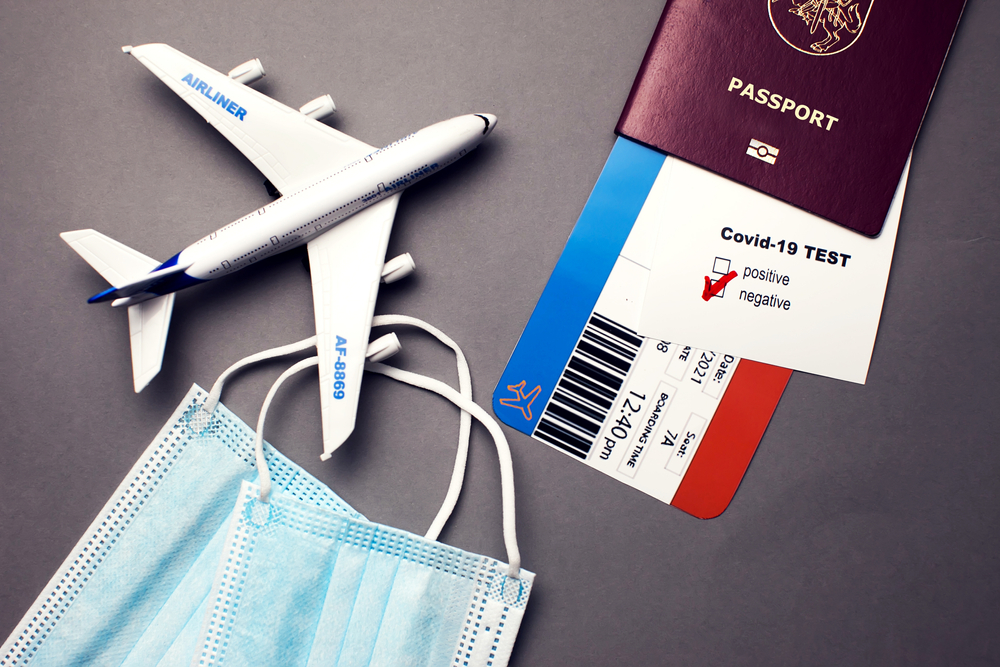CGTN
Thousands of airlines the world over have not flown in the last couple of months. From high-cost airlines to low-cost flights, planes have been grounded, as international, regional, and even national routes remain cancelled.
But even at a time when it still looks like it has to get worse before getting better, the Ethiopian Airlines Group made a surprise announcement. During an interview on May 5, company CEO Tewolde GebreMariam said that the Group is in talks with Mauritius and South Africa to revive their insolvent airlines.
"The Mauritian government is thinking of restarting that business with Ethiopian Airlines. We are at the initial point of the discussion to see what kind of partnership or joint venture it will be."
Although there were no proposals on the table with South Africa yet, GebreMariam said Ethiopian was willing to hold negotiations aimed at reviving the country's bankrupt airline. South Africa Airways is also embroiled in a tussle between various stakeholders about its ownership.
IATA
The International Air Transport Association (IATA) is appealing to governments in Africa and the Middle East, as part of a worldwide campaign, to provide emergency support to airlines as they fight for survival due to the evaporation of air travel demand as a result of the COVID-19 crisis.
“Stopping the spread of COVID-19 is the top priority of governments. But they must be aware that the public health emergency has now become a catastrophe for economies and for aviation. The scale of the current industry crisis is much worse and far more widespread than 9/11, SARS or the 2008 Global Financial Crisis. Airlines are fighting for survival. Many routes have been suspended in Africa and Middle East and airlines have seen demand fall by as much as 60% on remaining ones. Millions of jobs are at stake. Airlines need urgent government action if they are to emerge from this in a fit state to help the world recover, once COVID-19 is beaten,” said Alexandre de Juniac, IATA’s Director General and CEO.
Extensive cost cutting measures are being implemented by the region’s carriers to mitigate the financial impact of COVID-19. However, due to flight bans as well as international and regional travel restrictions, airlines’ revenues are plummeting—outstripping the scope of even the most drastic cost containment measures. With average cash reserves of approximately two months in the region, airlines are facing a liquidity and existential crisis. Support measures are urgently needed. On a global basis, IATA estimates that emergency aid of up to $200 billion is required.
IATA is proposing a number of options for governments to consider. They include:
- Direct financial support to passenger and cargo carriers to compensate for reduced revenues and liquidity attributable to travel restrictions imposed as a result of COVID-19;
- Loans, loan guarantees and support for the corporate bond market by governments or central banks. The corporate bond market is a vital source of finance, but the eligibility of corporate bonds for central bank support needs to be extended and guaranteed by governments to provide access for a wider range of companies.
- Tax relief: Rebates on payroll taxes paid to date in 2020 and/or an extension of payment terms for the rest of 2020, along with a temporary waiver of ticket taxes and other Government-imposed levies.
“Several governments in Africa and the Middle East have already committed national aid for COVID-19 including Saudi Arabia, the United Arab Emirates, Qatar, Bahrain, Egypt, Nigeria and Mauritius. Our ask is that airlines, which are essential to all modern economies, are given urgent consideration. This will help keep them alive and ensure airline staff – and people working in allied sectors - have jobs to come back to at the end of the crisis. It will enable global supply chains to continue functioning and provide the connectivity that tourism and trade will depend on if they are to contribute to rapid post-pandemic economic growth,“ said Muhammad Al Bakri, IATA Regional Vice President Africa, Middle East.
Africa’s air transport industry’s economic contribution is estimated at US$55.8 billion supporting 6.2 million jobs and contributing 2.6% to GDP. In the Middle East air transport’s economic contribution is estimated at US$130 billion supporting 2.4 million jobs and contributing 4.4% to GDP.
UNWTO
The COVID-19 pandemic has prompted all destinations worldwide to introduce restrictions on travel, research by the World Tourism Organization (UNWTO) has found. This represents the most severe restriction on international travel in history and no country has so far lifted restrictions introduced in response to the crisis.
Following up on previous research, the latest data from the United Nations specialized agency for tourism shows that 100% of destinations now have restrictions in place. Of these, 83% have had COVID-19-related restrictions in place already for four or more weeks and, as of 20 April, so far no destination has lifted them.
UNWTO Secretary-General Zurab Pololikashvili said: “Tourism has shown its commitment to putting people first. Our sector can also lead the way in driving recovery. This research on global travel restrictions will help support the timely and responsible implementation of exit strategies, allowing destinations to ease or lift travel restrictions when it is safe to do so. This way, the social and economic benefits that tourism offers can return, providing a path to sustainable recovery for both individuals and whole countries.”
Tracking Restrictions by Time and Severity
The social and economic benefits that tourism offers can return, providing a path to sustainable recovery for both individuals and whole countries.
As well as a general overview, the UNWTO research breaks down the type of travel restrictions that have been introduced by destinations in all of the global regions, while also plotting the evolution of these restrictions since 30 January – when the World Health Organization (WHO) declared COVID-19 a Public Health Emergency of International Concern. The latest analysis shows that, of 217 destinations worldwide:
- 45% have totally or partially closed their borders for tourists - “Passengers are not allowed to enter”
- 30% have suspended totally or partially international flights - “all flights are suspended”
- 18% are banning the entry for passengers from specific countries of origin or passengers who have transited through specific destinations
- 7% are applying different measures, such as quarantine or self-isolation for 14 days and visa measures.
Against this backdrop, UNWTO has been leading calls for governments worldwide to commit to supporting tourism through this unprecedented challenge. According to Secretary-General Pololikashvili, the sudden and unexpected fall in tourism demand caused by COVID-19 places millions of jobs and livelihoods at risk while at the same time jeopardising the advances made in sustainable development and equality over recent years.
CemacEco
The temporary suspension of activities seems to be the option chosen by the leaders of the Cameroon Airlines Corporation (Camair-co) during this period of health crisis. To do this, the Cameroonian public airline has embarked on the road to the layoff of a large part of its staff.
In a letter signed on April 23 and addressed to the Minister of Transport, who is also Board Chairman of the company, the Director General of Camair-co provides insights into the measure to layoff part of the company’s personnel. Louis Georges Njipendi Kouotou intends to suspend 371 employment contracts for a maximum of 6 months.
The employees concerned are those whose “activity is directly impacted by the suspension of operations,” he said. More specifically, these are sales personnel, station personnel, flight personnel, but also “administrative and support personnel, not essential during this period of slowdown”. Louis Georges Njipendi Kouotou specified to his hierarchy that consultation meetings successively with the labour inspectors, the staff representatives and the corporation of airline pilots have already been required to raise awareness among actors concerned about the current context, which explains their temporary dismissal.
An approach that seems to have been unpopular with staff representatives, some of whom responded to absent subscribers. The Director General places their action under the sign of “bad faith”.
Despite the layoff of some of its staff and the suspension of its activities, the airline will have to discharge a certain number of charges. These include the salary costs of the 206 retained during the period of suspension of activity (938,790,000 CFA francs) and the compensation of 371 people placed in technical unemployment (540,493,822 CFA francs). For the latter, their remuneration will be calculated in accordance with the provisions of decree No. 001 / CAB / MTPS of February 14, 1995 fixing the rates of compensation during the period of suspension of the employment contract due to technical unemployment. It will be calculated in proportion to the monthly salary, ie 50% for the first month, 40% for the second, 35% for the third, 30% for the fourth, 25% for the fifth and 20% for the sixth month. Before the coronavirus pandemic, the company had initially demanded 2 billion FCFA to keep the ailing company afloat . But till this moment, the money has not been disbursed.
BBC News
United Kingdom don change dia travel rules for fully vaccinated travellers from Nigeria.
The conversation
Tourism is an important source of funding for managing protected areas and provides jobs for people living near national parks and wildlife. When travel to protected and conserved areas such as national parks and community conservancies is cancelled en masse, jobs and conservation management are placed at risk.
Giltedge Travel
Countries in Africa that are open & entry requirements
Relief Web
UNHCR, the UN Refugee Agency, evacuated 172 vulnerable asylum seekers out of Libya to safety in Niger on the evening of 4 November. It was the first evacuation flight to Niger in more than a year, after the Libyan authorities lifted a blanket ban on humanitarian flights.
Xinhua Net
KAMPALA, Nov. 4 (Xinhua) -- Uganda's Ministry of Health on Thursday said inbound travelers to the east African country now do not need to spend more hours at the airport waiting for their COVID-19 test results.
Xinhua
South Africa's tourism authority on Wednesday welcomed the first group of tourists from China since the outbreak of COVID-19.


